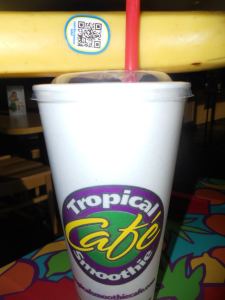You’ve seen them on store windows, magazine covers, and ketchup bottles. We even stopped at Tropical Smoothie (everything on the menu is worth ordering) for lunch recently and found a QR (quick response) code sticker on a banana. When we used an Android Smartphone to scan the sticker we found it contained banana recipes. There’s clearly some thoughtful marketing in play here. If you think the recipes sticker was resourceful, click here for the story behind a QR code used to tell a life story on a tombstone.
Selling your home with QR codes and augmented reality doesn’t need us to be this clever. Just committed to utilizing the latest technology available to the real estate industry to reach the biggest target audience related to the sale of your home. To decide if QR codes were worth our time investment, we contacted 3 popular real estate sales websites for recent data on mobile searches. While speaking to our representatives with Trulia.com, and Realtor.com, we learned during the past 6 months about 30% of all property inquires conducted during weekends were done through company search applications on smartphones. Kokee Smith, our account manager with Zillow.com commented about one-third of the weekend home searches conducted on Zillow are being executed from smartphones with a Zillow.com search application. Although there was no conclusive data available specifically for QR codes, the growing use of mobile searches among potential home buyers is obvious.


